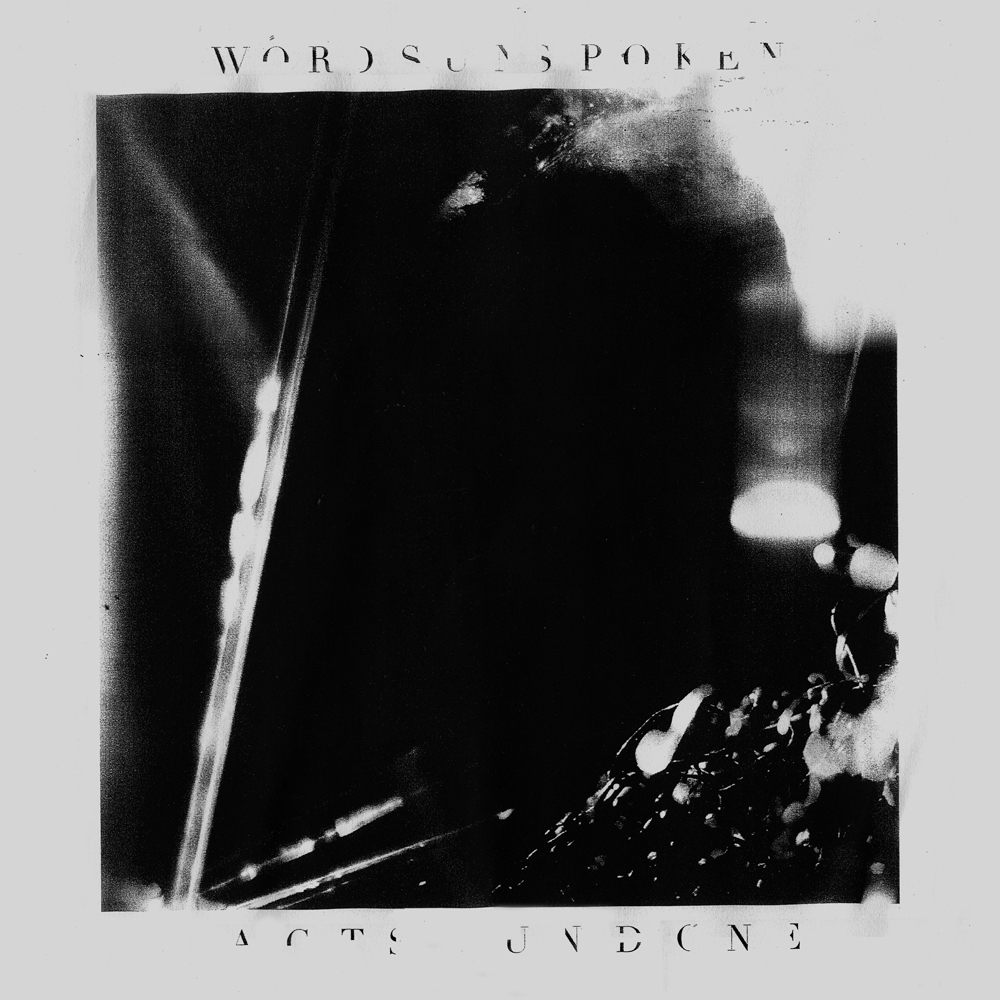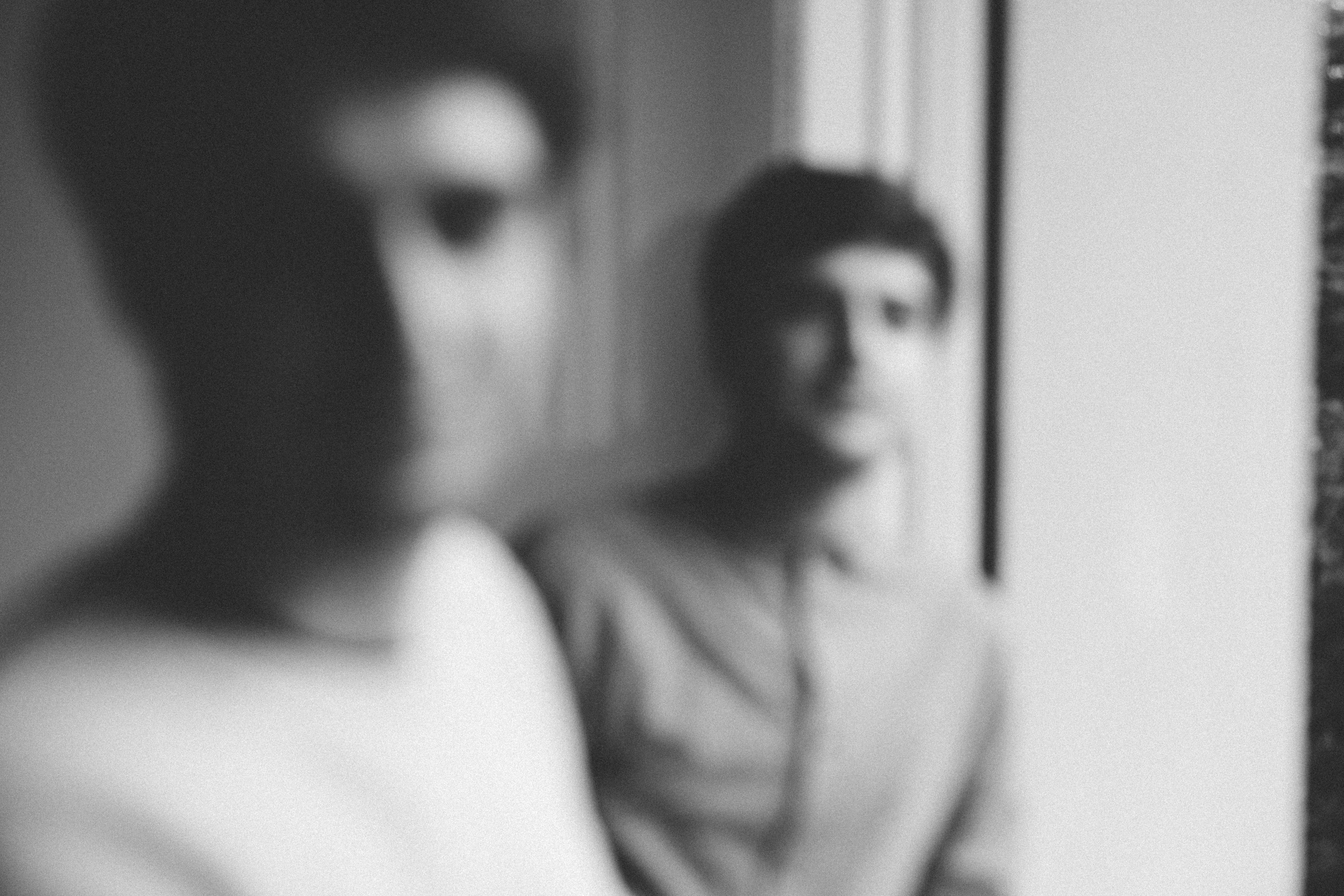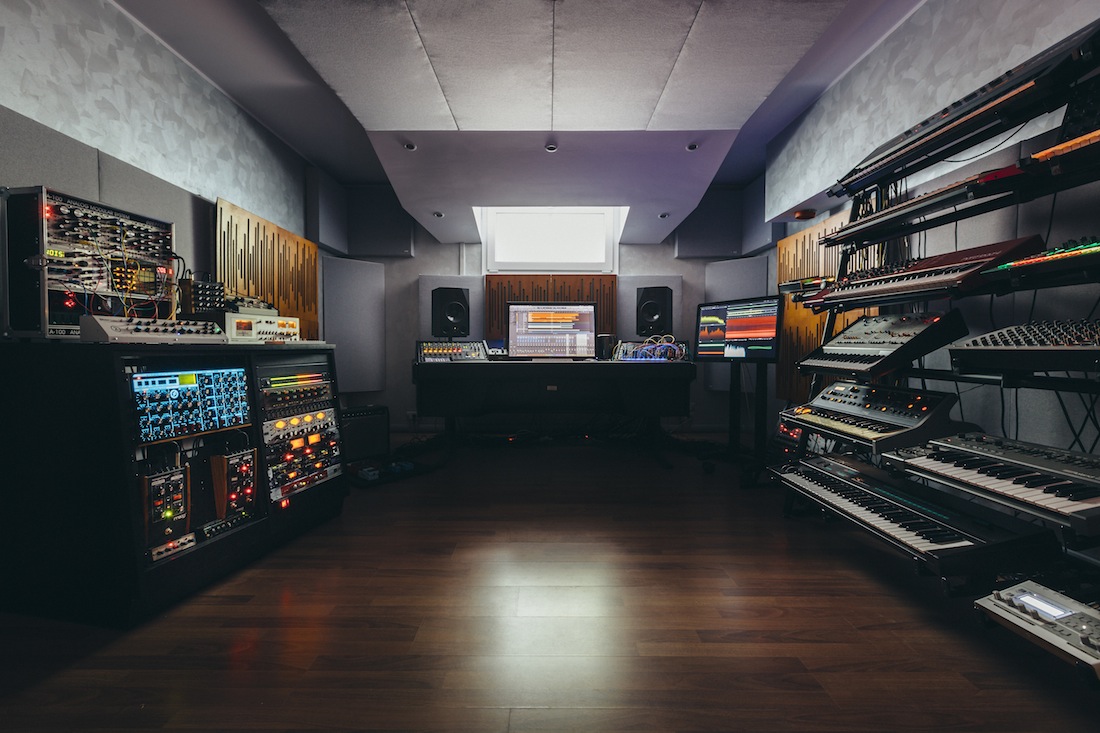Q&A: CW/A
With their new album, Clockwork and Avatism continue their quest for aural liberation.

Q&A: CW/A
With their new album, Clockwork and Avatism continue their quest for aural liberation.

Francesco Leali and Thomas Feriero are confident about their new album, Words Unspoken, Acts Undone. They’re less certain how everyone else will respond to it. It’s bold, ambitious, meticulously designed and unlike anything they’ve made before. The press release cites “early Warp style bass, U.K. jungle and Downwards-influenced dub techno” as references, although in truth it’s beholden to none of these things. It’s a stand-alone body of work that’s been unriveted from the club, then loosely tacked back into place again, with performance and improvisation at its core. It makes for a radical and wonderful listen, nuanced with surprises—especially for those better acquainted with the pair known separately as Clockwork and Avatism.

Despite being an acronym of Leali and Feriero’s solo aliases, CW/A is a deliberate departure from both. After living and working side-by-side in London, the U.S.and Berlin, these two childhood friends from Milan finally came together in 2013. Feeling pigeonholed in a scene that never fully sat right with either of them, CW/A was the breakout they’d been pining for. And since setting up Parachute Records with Manfredi Romano (a.k.a. DJ Tennis) they’ve set their full musical range loose. Aside from the tough techno sound showcased on Day Of Riddance, there’s been soundtrack and ambient works from both under different pseudonyms on Void Transcripts, one of two compilations released this summer. And things are about to get weirder for Parachute. They mention disco, punk and a girl with a guitar; a polar-opposite move from what we’ve seen from the label so far—but it’s all part of the same liberated ethos Leali and Feriero have been pursuing together as CW/A. With their first fully-formed opus set to drop, we decided to try to get to the bottom of it all.
Describe the situation that led up to the creation of CW/A.
Thomas Feriero: When we started making music, we were just trying to make music. We weren’t trying to make deep house or techno or anything. It was around the time deep house was popular so we started getting bookings for that. In Berlin we kind of got lost in it and felt like we had to keep doing that. Then we realized we don’t come from that; we listen to all sorts of stuff. We didn’t want to start completely new, but have a platform to do whatever we want.
Francesco Leali: We started making music because it was something we were both interested in—I had studied music, Thomas had studied music—and we ended up in this scene that at a certain point we didn’t feel comfortable in. We decided we didn’t want to be pinpointed as DJs or live acts that only play house music or make club music. We thought we had to amplify our horizons, and this is how the CW/A project came around.
When was the moment you decided to work together on music?
Feriero: It started when Francesco was invited to play Sónar festival in 2013. It was part of his album tour. They asked for him live. He’d never played live before and I was playing live at the time, so he asked me to join him and Federico for this show.
Leali: Planning it took us months.
Feriero: For me, it was the first time playing live with someone else. It was so much fun. We did that one-off show and were thinking that we enjoyed it so much, we have some time, we should try it again. We’d both done our albums and took a break from music, so when we came back we had all these different ideas that didn’t really fit. Because we wanted to do them together and play them live, we thought to do a separate project—even though it’s still linked to our our past in the name, which is stupid. Our agent picked it. [laughs]
It’s not the most imaginative.
Feriero: And it’s really confusing. So it kind of just happened and now we’re stuck with it.
Leali: Because we didn’t want to cause any more confusion.
Feriero: The Sonar show was just called Clockwork featuring Avatism, because they wanted him, to be honest. Then after that we had a few tracks and a Watergate gig pinned down. The Watergate show was for Vakant, a label I used to release on, which is based in Berlin. But the next record to come out [on Vakant] would be as CW/A, called Conducting The Method.
Leali: That was the first official CW/A release.
What can you tell us about this record?
Feriero: Before Conducting The Method we’d made ten tracks; we almost had an album. So we just took some extracts and made that first record. They just came out a bit more minimal in structure because we weren’t trying to make songs; we were making things to play live. Day Of Riddance on Parachute came from the same sessions as well. We have a third EP, too, which is a bit more complicated because it never came out. It’s called Endings and was supposed to be released on M_Rec but unfortunately Max_M passed away.
Did you know Max_M personally?
Leali: We were good friend with him, although we met him in person in Milan not that long ago. We immediately bonded over a lot of stuff that wasn’t necessarily music-related. He was an amazing person to hangout with. His passing happened in no time.
Feriero: He did the second EP on our label, Parachute, with Wrong Assessment, and then he asked us for an EP on his label.
How did Parachute Records come about?
Leali: Fredi, DJ Tennis, invited me to Berlin to help out with his album. We came up with a name and decided the first release would be B.O.A.T.S. Remixes from Deadbeat and Answer Code Request. When we decided to release the CW/A Day Of Riddance EP with Lucy and Dario Zenker, we decided we wanted Thomas to jump in.
We didn’t want it to be a techno label or house label but have the same thinking process as CW/A, more individual. We decided to take the example of labels like XL and Houndstooth, TriAngle, Diagonal. That’s when we started looking into more risky stuff and eclectic artists, people who weren’t even making electronic music until a while ago. The release that’s coming out after the album is from an artist called Bop, which is kind of rock, metal, artsy…
Feriero: …disco.
Leali: We have the hardest time writing press releases.
“When people hear the CW/A album and they don’t know if it’s techno or breakbeat, that makes me happy.”
Feriero: It’s really hard to describe and I think that’s a good thing. When people hear the CW/A album and they don’t know if it’s techno or breakbeat, that makes me happy. We don’t listen to just techno; we don’t listen to just breakbeat or jungle. We like it that way. Then after Bop, we have this girl from Berlin who’s just playing guitar and bass and sings on top.
The first couple of Parachute records were pretty banging techno.
Feriero: Yes, the first three were techno. I don’t wanna brag about changing the direction, but I had nothing to do with them. [laughs] The original idea was to keep it techno. If you look at the back catalog as it is, it looks like we’re trying to make a harder, banging techno label. But the next four releases we have planned are the exact opposite.

What are the dynamics like between you two in the studio? Do you have specific roles?
Leali: I’d say we have roles. We work well together, which is the opposite of the partnership with Federico; we didn’t need each other to do Clockwork whereas with CW/A we need each other. We have two qualities that compensate one another, we teach each other things and keep on teaching each other things.
Thomas is a great sound engineer and a great producer. And I’ve played music for longer than I’ve made music, so these two things come in handy when we’re making the music we’re trying to make now. We play more instruments and we mix stuff in a more professional way. CW/A wouldn’t be possible if I weren’t working with Thomas, and it would sound totally different if we were doing it with other people.
What is your current studio like?
Feriero: We’ve been working on this studio for two years; Italian workers, it took ages. We’re finally moved in and now we have a proper control room for the first time, a mastering-grade listening room. Before we were working in bedrooms, living rooms. First off it’s made us a lot more confident; we know what we’re hearing is exactly what the sound is. It’s definitely been a paradigm shift. Studio-wise we have all sorts of things.

Do you have an integral CW/A piece of gear?
Feriero: We get that a lot and it’s always hard to answer. For the album, the main thing was to try and use everything we had.
Leali: We wanted to use stuff differently rather than the way it should be used.
Feriero: For example, for my album [Adamant on Vakant] I was sticking to what worked. But for this album we were trying everything: Sampling and then just using synths we’d never used; we got into modular set ups, which we’d never done before. It really opened up to a lot of ideas.
When did you start working on Words Unspoken, Acts Undone? It sounds like it’s been in the making ever since CW/A was born.
Feriero: When we were working on Conducting The Method we made some things that didn’t fit. Once we had two or three of these, we decided to start working on the album on the side, without any rush. Then we took some older material from another project that never got released. That left us with six tracks that we really liked. I can’t remember which six tracks we eventually put on the album, but that’s where we started.
We wanted it to have a bigger statement to differentiate it from our previous work.The EPs hint at that, but it’s not that much material to work with. An album has more weight. So once we had enough tracks we decided to make an album to have more freedom, to be able to play more freely live. Once the album is out people will know what to expect when they come to a show.
“We get a lot of people who are like, ‘Wow, you guys are making this?’ And we get the occasional guy who comes up and says, “I prefer what you guys were doing solo—this is too extreme.’”
Have you encountered backlash at CW/A shows then, on account of your solo histories?
Feriero: We get a lot of people who are like, “Wow, you guys are making this?” And we get the occasional guy who comes up and says, “I prefer what you guys were doing solo—this is too extreme.” I’m confident, even if our agent worries about us when he hears someone say they prefer our old stuff. We’re confident when clubs like Fabric and Concrete are investing in us. That means we’re doing something right. To be honest I’d rather have the interest of people who are into the music and really passionate about it.
What’s the biggest change you’ve noticed about performing now as CW/A?
Feriero: I always felt like people were listening, waiting for my mistakes before. I remember when I was playing shows in my first year, everyone wanted to come see me live—not because they were interested in what I was playing, they just wanted to see me fuck up or something. We have a lot more freedom the way we play now. I think it’s a lot more satisfying. If there are less people in the room I couldn’t care less.
Leali: It’s not a usual live for the music we’re doing, so people are interested in that rather than coming to see how pristine or close to the EPs the show gets. We’re playing this stuff live and there’s a lot of improvisation going on. We can play a two hour live now but we like to keep it to an hour, hour and a half because…
Feriero: We’re exhausted by the end.
Leali: I played Panorama Bar for eight hours and I was more exhausted after a CW/A live set because from the first to the last you’re busy every second.

How do you feel about the way Words Unspoken, Acts Undone has turned out?
Leali: I am personally quite happy. I’m happy about the end result, but I am also happy that I did it with Thomas. It’s not something I might have gone through by myself. I’m happy how it came out independently of how it’s going to be received, because I really don’t think everybody’s going to like it. The point of this project was to showcase that we can make other stuff. And this is more.…
Feriero: More natural.
Leali: We’re not trying to please a record label owner, or manager, or booker.
Feriero: It was really inspiring and a completely different experience for me. We’re happy and proud of what we did because it’s what we wanted. And I’m confident it will do well.

